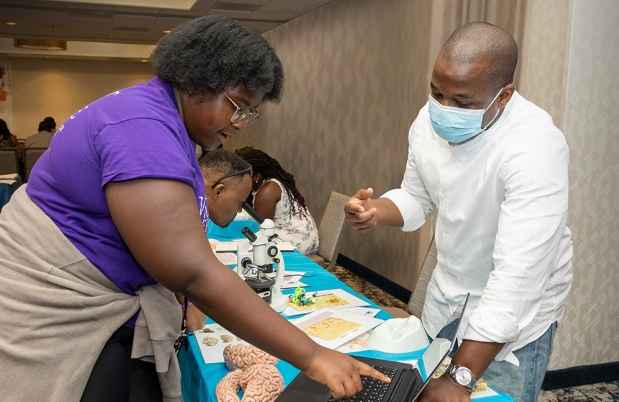McLean Hospital Collaborations in Pakistan
Global mental health can positively impact sustainable development and well-being worldwide. McLean Hospital is committed to increasing access to mental health services, raising awareness, and reducing stigma associated with mental health conditions—throughout the world.
To further these goals, McLean is partnering with major academic institutions, hospitals, government agencies, and NGOs in Pakistan. These efforts have led to the creation of a consortium of organizations focused on raising mental health awareness, building the capacity of the current workforce, and developing policies to inform public health guidelines.
The collaboration is led by Alaptagin Khan, MBBS, FRSPH, a research associate at McLean’s Developmental Biopsychiatry Research Program.
Why Is McLean Doing Work in Pakistan?
Pakistan, like many developing countries, suffers from decades of internal conflicts, poverty, natural disasters, and a lack of resources. Data collected by the Aga Khan University Hospital in 2016 suggests that one in four Pakistanis—roughly 50 million people—struggle with common mental disorders because of these factors. Approximately 20 million children need professional mental health care. Unfortunately, there are only 450 psychiatrists to serve the country’s 217.6 million people. In rural areas, this means one psychiatrist for every 1 million people.
Although the lack of resources is largely to blame, factors like the stigma associated with psychiatric disorders and ingrained cultural norms have also led to the current mental health crisis. Pakistan is among the few countries in the world where attempting suicide is a criminal offense. Punishment can be imprisonment of up to one year, a fine, or both.
While child abuse and gender-based violence are global problems, these issues are particularly acute in Pakistan. Research over the past two decades has provided evidence for associations between child abuse and adult mental health outcomes.
In addition, there is a strong association between gender-based violence and mental health issues such as depression during pregnancy and after giving birth.
Taking Steps To Address the Crisis
McLean has engaged with organizations in Pakistan to address these issues. The collaborations aim to increase access to psychiatric care and develop capacity-building initiatives for health care professionals. The outreach effort places emphasis on mental health outcomes of child abuse and gender-based violence.
In December 2015, preliminary needs assessment workshops were conducted in collaboration with UNICEF (Child Protection Cluster) and UNWomen (Gender-Based Violence Cluster). Surveys revealed that 43% of health workers working in the area of child protection did not have specific training in mental health. The surveys also showed that 40% of these workers did not have any training in provision of psychosocial support measures.
The surveys also indicated a lack of infrastructure for community-level mental health interventions or implementation. There is no national-level database on child abuse in Pakistan. Clinicians working in psychiatry, pediatric, and emergency units don’t have training to screen or assess non-accidental abuse or trauma in children or adults.
Faced with these issues and other problems, work began to design a strategy focused on raising awareness about common mental health problems. Emphasis was placed on child abuse and gender-based violence. Work also began to serve those in need.
To accomplish these goals, McLean and its partners worked to engage major academic and training institutions in Pakistan. They also started developing the infrastructure for awareness-raising and mental health-related community interventions.
The initiative helped to develop the capacity of the clinical workforce, both at the tertiary and primary care level. Furthermore, the initiative has moved forward to establish an international trauma-informed think tank. This effort led to establishment of a consortium of institutions and NGOs to work toward defined goals and objectives.
Two-Day Mental Health Education Conference
In October 2023, McLean Hospital welcomed a delegation of government officials from Pakistan who gathered to learn more about mental health and to identify opportunities to improve mental health throughout Pakistan.
The conference, hosted by McLean’s Education Outreach department, opened with presentations from the delegates focused on helping the McLean team better understand the cultural, political, socioeconomic, and public health landscape of Pakistan.
While Pakistan is under-resourced when it comes to mental health providers and services, the opening sessions made it clear that despite several challenges, Pakistan is committed to improving mental health care and that the leaders who visited McLean are taking a thoughtful and forward-thinking approach to address the mental health needs of Pakistan’s residents.
Through the conversations over the two-day event, a few common themes were identified, including:
- Overwhelming fear, shame, and stigma related to having a mental illness or asking for help, connected to family shame and fear of ostracization from the community
- A limited understanding of the detrimental effects of physical, emotional, and environmental trauma
- Lack of access to care due to a very limited pool of health care providers and an even smaller number of mental health care professionals
- Technology adoption in Pakistan can be leveraged to enhance public and professional education about mental health via collaborations to develop and deliver tools that can increase understanding about mental health and provide support to health care workers who work directly with patients and their families
- The youth of Pakistan pose a great opportunity to affect change through increased access to online screenings and tools to drive a better overall understanding of mental health and decrease barriers to seeking help
While the delegation from Pakistan came to Boston to learn from McLean’s experts on the delivery of scaled mental health care, education, and stigma reduction programs, the McLean team walked away from the meeting with great appreciation for the work already being done in Pakistan.
To wrap up the two-day conference, the group engaged in a robust roundtable discussion to plot out next steps, which will incorporate collaborations on the development of culturally sensitive educational content, including online courses, stigma reduction campaigns, such as McLean’s Deconstructing Stigma, and continued conferences to encourage the exchange of ideas.
Since the initial meeting at McLean, discussions have continued regularly to review Pakistani health and social well-being policies that can be broadened to include mental health components. Additionally, plans are underway for a future Pakistan mental health summit.
Delving Into Mental Health in Pakistan
Read more about the mental health education conference and watch the introductory presentations.

Impact of the Collaboration
A challenge of global proportions can only be addressed through long-term, sustained, and collaborative efforts. Even in these early stages, the collaboration has produced several significant achievements. For example, Pakistan’s first Childhood Trauma Research Center was launched in June of 2018 at Lady Reading Hospital, Peshawar, in collaboration with Neurocare Foundation. The center has been collecting information on childhood trauma and its developmental outcomes.
Data collection through this initiative will allow health professionals to assess the true disease burden of mental health disorders associated with childhood trauma in Pakistan. Through the center, collaborators have collected data from close to 750 participants on type and timing of childhood abuse. They plan to collect data on 2,500 participants by December 2020, eventually making this a nationwide effort.
Elsewhere, the group has conducted more than 10 awareness-raising seminars and capacity-building workshops. These have focused on topics including childhood trauma, gender-based violence, and mental health awareness. Attended by faculty members, clinicians, medical students, and community health workers, the workshops have been well received. More institutions are requesting to organize such workshops and seminars for their faculty and students.
Also, a stand-alone, four-day public mental health conference in collaboration with the Pakistan Psychiatric Society has been planned for 2021. This event will include international participants from McLean and Germany.
Furthermore, researchers from McLean and the Pakistan Psychiatric Society are working on a mental health reform survey. The survey will be conducted throughout Pakistan among practicing psychiatrists and policymakers.
McLean is also working with Khyber Medical University, Peshawar, to develop an online certificate program titled “Child Abuse, Gender-Based Violence and Public Mental Health.”
The initiative launched two neurofeedback therapy centers in Peshawar in 2018. This collaboration also trained 25 psychiatrists, neurologists, and psychologists in administering neurofeedback therapy. These centers have already treated more than 300 individuals living with major psychiatric disorders, such as treatment-resistant depression, substance use disorders, and psychogenic non-epileptic seizures. The initiative’s collaborators plan to open two more neurofeedback centers, launching in Islamabad in 2020.
Statistics on Mental Health in Pakistan
- According to World Health Organization (WHO), mental disorders account for 4% of the total disease burden, with the mental health burden higher among women.
- There are 450 registered psychiatrists in Pakistan for a population of 217.6 million. According to WHO, this is one of the lowest numbers in the WHO Eastern Mediterranean Region—and in the whole world.
- According to the Pakistan Psychiatric Society, about 9,000 psychiatrists are needed to address the country’s current mental health challenges.
- Pakistan has the highest rate (31%) of postpartum depression in South Asia.
- Various studies conducted in different localities in Pakistan over the past 10 years give prevalence of anxiety and depression ranging from 22% to as high as 60% in a given population.
- Recent studies have reported up to 80% prevalence of antenatal depression.
- Between 85 to 90% of those with mental illness in Pakistan do not seek treatment.
- Pakistan is among the few countries in the world where attempting suicide is a criminal offense. Punishment can be imprisonment of up to one year, a fine, or both.
- Although there is no official database, experts believe that between 15-35 people in Pakistan end their lives every day.
About the Collaborators
Since the launch of the collaboration, the number of institutions and organizations that have joined the effort has grown. Here’s a look at a few of McLean’s partners in Pakistan.
Since its inception in 1972, the Pakistan Psychiatric Society (PPS) has grown to be the country’s largest scientific and professional psychiatric membership organization, representing more than 400 psychiatrists. The society is committed to the “promotion of mental health, professionalism, ethically sound care for patients and their caregivers, teaching and training, along with research and development in the field of psychiatry globally in liaison with the global community.”
Neurocare Foundation (NCF) is at the forefront of McLean’s outreach efforts in Pakistan. Alaptagin Khan founded the nonprofit to provide mental health services to people in need. The organization raises awareness about psychosocial determinants of mental health, such as child abuse and gender-based violence. The group also works to develop capacity-building initiatives and promote research efforts with international partners.
Other collaborators include major academic institutions, such as Khyber Medical University, International Islamic University, and Health Services Academy. McLean has also recently partnered with two all-women academic institutions: Shaheed Benazir Bhutto University and Women Medical College.
Major tertiary care teaching hospitals are part of the McLean partnership. These include Lady Reading Hospital, the largest public health care provider in the province of Khyber Pakhtunkhwa, and Shifa International Hospital, one of the largest private sector hospitals in the country, situated in the federal capital.
Efforts by McLean have also resulted in bringing together a consortium of NGOs actively working in the child protection and gender-based violence sector. Members of the consortium include the Society for Sustainable Development, Association for Community Development, Al-Mubarak Welfare Society International, Karwan Development Foundation, and Zamung Kor Model Institution for State Children.



